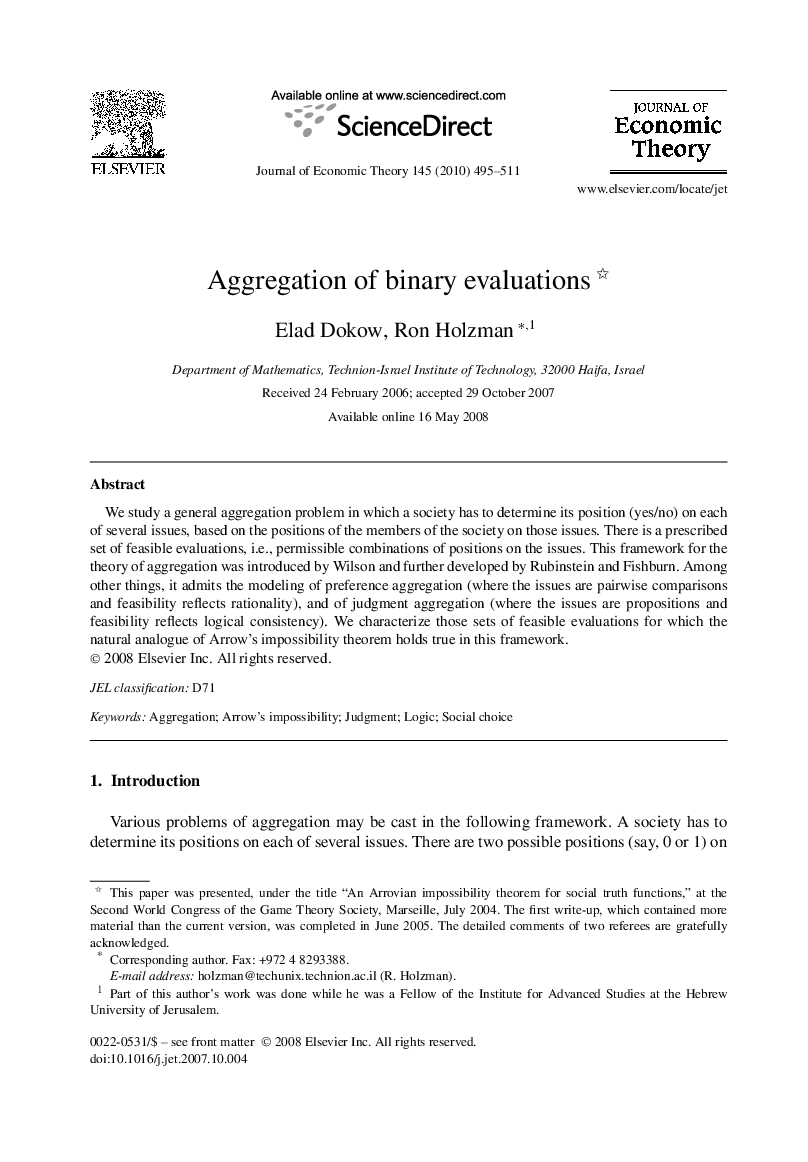| Article ID | Journal | Published Year | Pages | File Type |
|---|---|---|---|---|
| 957546 | Journal of Economic Theory | 2010 | 17 Pages |
We study a general aggregation problem in which a society has to determine its position (yes/no) on each of several issues, based on the positions of the members of the society on those issues. There is a prescribed set of feasible evaluations, i.e., permissible combinations of positions on the issues. This framework for the theory of aggregation was introduced by Wilson and further developed by Rubinstein and Fishburn. Among other things, it admits the modeling of preference aggregation (where the issues are pairwise comparisons and feasibility reflects rationality), and of judgment aggregation (where the issues are propositions and feasibility reflects logical consistency). We characterize those sets of feasible evaluations for which the natural analogue of Arrow's impossibility theorem holds true in this framework.
